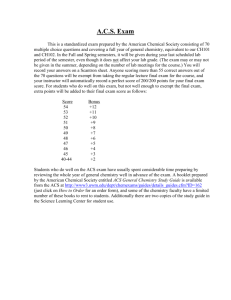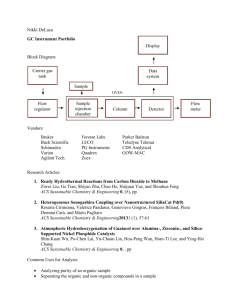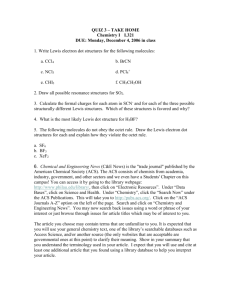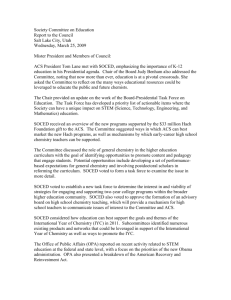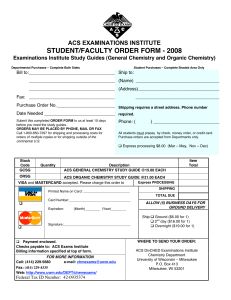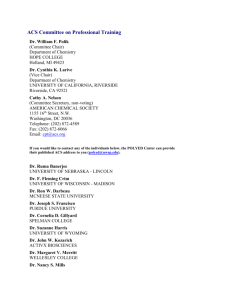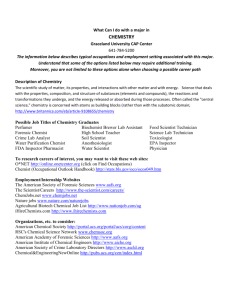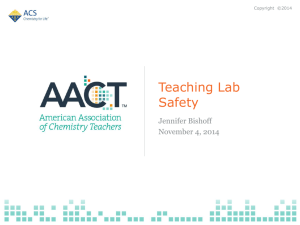ACS What are the most exciting areas of chemical research in... specialty?
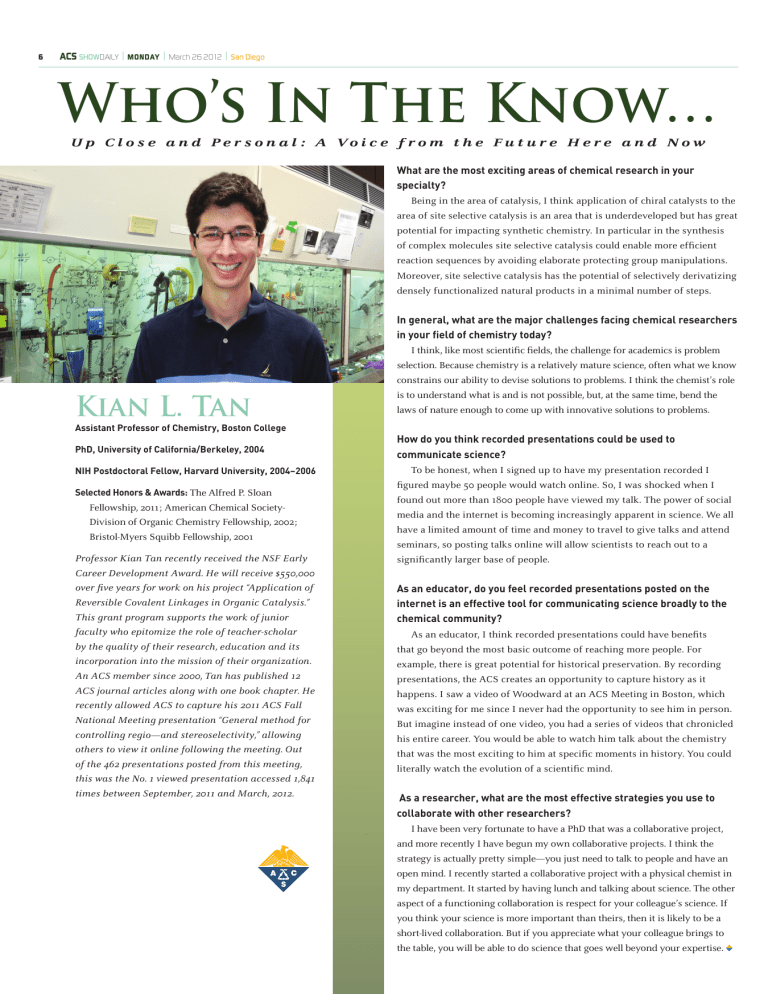
6 ACS
SHOW DAILY
|
MONDAY
|
March 26 2012
|
San Diego
Who’s In The Know…
U p C l o s e a n d P e r s o n a l : A V o i c e f r o m t h e F u t u r e H e r e a n d N o w
What are the most exciting areas of chemical research in your specialty?
Being in the area of catalysis, I think application of chiral catalysts to the area of site selective catalysis is an area that is underdeveloped but has great potential for impacting synthetic chemistry. In particular in the synthesis of complex molecules site selective catalysis could enable more efficient reaction sequences by avoiding elaborate protecting group manipulations.
Moreover, site selective catalysis has the potential of selectively derivatizing densely functionalized natural products in a minimal number of steps.
Kian L. Tan
Assistant Professor of Chemistry, Boston College
PhD, University of California/Berkeley, 2004
NIH Postdoctoral Fellow, Harvard University, 2004–2006
Selected Honors & Awards: The Alfred P. Sloan
Fellowship, 2011; American Chemical Society-
Division of Organic Chemistry Fellowship, 2002;
Bristol-Myers Squibb Fellowship, 2001
Professor Kian Tan recently received the NSF Early
Career Development Award. He will receive $550,000 over five years for work on his project “Application of
Reversible Covalent Linkages in Organic Catalysis.”
This grant program supports the work of junior faculty who epitomize the role of teacher-scholar by the quality of their research, education and its incorporation into the mission of their organization.
An ACS member since 2000, Tan has published 12
ACS journal articles along with one book chapter. He recently allowed ACS to capture his 2011 ACS Fall
National Meeting presentation “General method for controlling regio—and stereoselectivity,” allowing others to view it online following the meeting. Out of the 462 presentations posted from this meeting, this was the No. 1 viewed presentation accessed 1,841 times between September, 2011 and March, 2012.
In general, what are the major challenges facing chemical researchers in your field of chemistry today?
I think, like most scientific fields, the challenge for academics is problem selection. Because chemistry is a relatively mature science, often what we know constrains our ability to devise solutions to problems. I think the chemist’s role is to understand what is and is not possible, but, at the same time, bend the laws of nature enough to come up with innovative solutions to problems.
How do you think recorded presentations could be used to communicate science?
To be honest, when I signed up to have my presentation recorded I figured maybe 50 people would watch online. So, I was shocked when I found out more than 1800 people have viewed my talk. The power of social media and the internet is becoming increasingly apparent in science. We all have a limited amount of time and money to travel to give talks and attend seminars, so posting talks online will allow scientists to reach out to a significantly larger base of people.
As an educator, do you feel recorded presentations posted on the internet is an effective tool for communicating science broadly to the chemical community?
As an educator, I think recorded presentations could have benefits that go beyond the most basic outcome of reaching more people. For example, there is great potential for historical preservation. By recording presentations, the ACS creates an opportunity to capture history as it happens. I saw a video of Woodward at an ACS Meeting in Boston, which was exciting for me since I never had the opportunity to see him in person.
But imagine instead of one video, you had a series of videos that chronicled his entire career. You would be able to watch him talk about the chemistry that was the most exciting to him at specific moments in history. You could literally watch the evolution of a scientific mind.
As a researcher, what are the most effective strategies you use to collaborate with other researchers?
I have been very fortunate to have a PhD that was a collaborative project, and more recently I have begun my own collaborative projects. I think the strategy is actually pretty simple—you just need to talk to people and have an open mind. I recently started a collaborative project with a physical chemist in my department. It started by having lunch and talking about science. The other aspect of a functioning collaboration is respect for your colleague’s science. If you think your science is more important than theirs, then it is likely to be a short-lived collaboration. But if you appreciate what your colleague brings to the table, you will be able to do science that goes well beyond your expertise.
